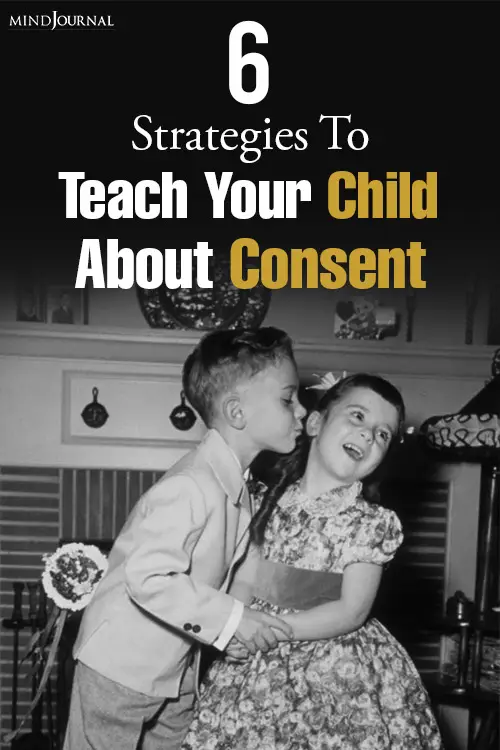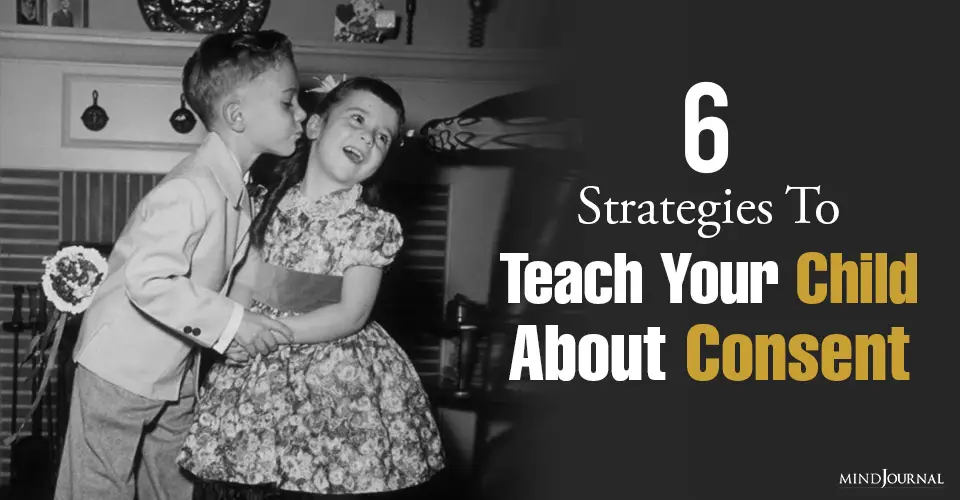Recent national events have put such concepts as consent and personal safety to the forefront of many parents’ minds. It can be difficult to know how to address concerns of a sexual nature with children in a way that is age-appropriate, honest, and non-threatening. How can you teach your child about consent?
Parents may find themselves worrying how to help their children develop into respectful individuals that can protect the personal boundaries of themselves as well as others. They may wonder how to establish the kind of relationship that will allow their children to share questions or worries that might arise.
These are timely and challenging concerns that do not have a quick fix or one-time solution. Rather, they require continual intentional efforts to help children learn and integrate the crucial messages that their body belongs to them, that their voice matters, and that the adults in their lives are there to protect them.
The following list includes several suggestions that you might find helpful in navigating this difficult parenting task. Let us know if you find these strategies to teach your child about consent helpful.
1. Teach young children the anatomically correct names of their private parts.
Teaching young children to use words like penis or vagina to describe their private parts shows them, from a very young age, that these parts are not shameful or bad and can be labeled in the same way we label our nose or arms or fingers.
Language empowers, and using the correct terminology from the beginning provides children the framework to communicate related questions or problems to adults. Tragically, there have been cases of sexual abuse in which children have attempted to divulge what was being done to them, but because they used unfamiliar or “playful” terminologies to describe the abusive behavior, the truth took much longer to be recognized.
Read: 25 Effective Parenting Rules For Mothers With Sons
2. Model for them that no means no, long before sex is ever involved.
How can we expect our teenage and young adult children to seek and receive consent if it is something that we have never practiced with them before? Young children often express discomfort around certain peer and adult behaviors and we can use these moments as didactic opportunities for respecting boundaries.
This might look like telling Aunt Brenda at Thanksgiving that your son doesn’t have to kiss her hello. It might mean reminding your spouse in a tickling match with your daughter that her saying “Stop” (however playful it might be) does not mean “keep going.” It might look like asking your child if you can have a hug goodnight and then respecting his or her answer.
At the same time, these boundaries can be taught and reinforced in your child’s peer relationships. One example might be pulling your son aside and pointing out how his constant pestering of a new friend at the playground is causing him or her distress. Or it might mean teaching your daughter to recognize when her torrent of hugs and kisses begins to upset her little brother and helping her to stop herself.
Read: Mindful Parenting: How to Raise Kind and Conscious Teens
3. Talk about “good touch” and “bad touch.”
There are many resources online of how to talk to your children about appropriate and inappropriate touch, and many tend to include the “swim suit” model of talking about touch: namely, that our private parts are those parts that are covered by a bathing suit and are different for boys and girls.
Talk about different kinds of touch (ie. poking, rubbing, tickling, scratching, etc.) and take turns practising on your/their arms as you do so. Talk about different kinds of good–or non-threatening–touch (ie. giving a side hug, doing a high-five, tagging someone “it”).
Talk to your kids about the kinds of touch that might make them uncomfortable–no matter whether it is in the swimsuit area or not. Some parents and children might find this process is facilitated with the aid of dolls or puppets. You might refer to a puppet and say, “Emma feels uncomfortable when someone hugs her very tight.
What should she do?” or, “Jason’s friend asked him to see his private parts and he isn’t sure what to do. What could we tell him?” It is important to explain the reason behind good and bad touch so that kids don’t feel like it is yet another arbitrary rule given by their parents. This might sound like,
“The reason why we don’t show our private parts to others or let others touch them is because they are special and belong just to us. When we touch someone else’s private parts or they touch ours, it can make us/them feel scared, sad, embarrassed, or bad. I don’t want you or anyone else to feel that way!”
Read: 4 Types Of Parenting Styles In Psychology: What Kind Of A Parent Are You?
4. Teach your children that they can say “No.”
Although “no” is hardly our favorite word to hear as parents, it is crucial that children know and understand that they can say “no” to important things and have that be respected. Teach children explicitly that if someone does something that makes them uncomfortable, that they have the right (and your full support) in telling that person “no.” You might practice possible age-appropriate responses (for a 3 year old it might be, “No! Stop! I don’t like that!”.
For a 9 year old it might be, “That makes me uncomfortable and I want you to stop.”) Teach them empowering statements such as, “Whenever you feel uncomfortable, you can say no.” Specify that it doesn’t matter if that person is a family member or an authority figure or friend–if your child feels uncomfortable because of something they do, they do not have to continue engaging in that behavior.
Help them to understand that if they feel unsafe or uncomfortable or worried about a particular situation that you will back them up 100% of the time. I will always remember the words of one adult survivor of abuse who told me once, “I don’t understand why my mother never told me I could say no…”
5. Practice responding calmly and curiously.
Many children who experience inappropriate or uncomfortable events do not want to share them with their parents out of fear of making their parents angry. Set a precedent of reacting calmly and curiously to things that your children might share with you, no matter how upsetting you might find them in the moment.
Children tend to remember how adults react to situations more than the specific words that they say–try to maintain both calm words and a calm demeanor when discussing concerns with your children. Avoid using “why” questions, and instead try for open-ended inquiries such as, “So what happened next?” or “How did that make you feel?” Prove to your kids, in as many moments as you can, that you are that safe, secure base to which they can turn.
Read: Permissive Parenting Style: Why It’s Bad For You and Your Child?
6. Integrate teaching moments into day to day events.
Like most important conversations, it is not a one-time thing to teach your child about consent. Rather, it should be an ongoing conversation that evolves with the child’s growing knowledge and maturity. Find ways to incorporate conversations about safety into your daily routine (ie. ask how your child might respond in a hypothetical situation, share how you might react, start conversations about things that you see together on TV or in advertising).
Use play to help reiterate important points (ie. have your child teach a doll about what he/she knows, play “Stop/Go” games to practice identifying and interrupting behaviours, monitor your child’s play with peers/siblings to find moments in which consent/boundaries can be practiced.) Repeat, repeat, repeat the message that your children can come to you with their concerns, that they do not ever have to allow someone to do something that makes them uncomfortable, and that you will believe and support them no matter what.
Are you ready to teach your child about consent?
Please share this article with anyone who you may think will find it valuable and helpful.
Written by: Allison Brown Republished with permission. Originally appeared on: Family Therapy LLC









Leave a Reply
You must be logged in to post a comment.